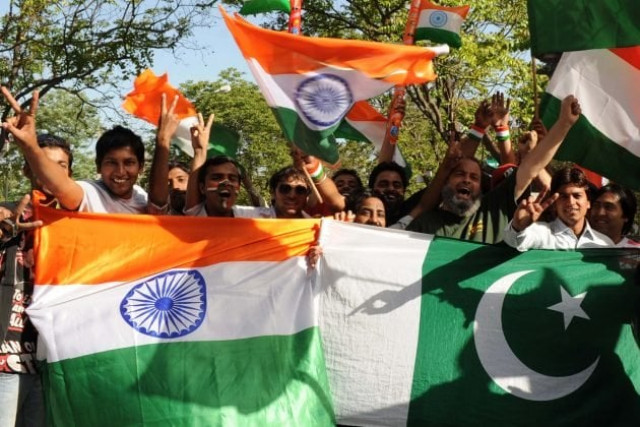Of the Indo-Pak love story
But it is by no means an easy proposition given current state of relationship between Pakistan, India

PHOTO: AFP
Diplomats' harassment: Pakistan, India agree to resolve issue through talks
In the 45-second video, Amar Deep Singh’s father could be seen given a rousing welcome by the people of Okara. The response was spontaneous. People could be seen taking selfies with Bhatia, who was 14 years old when had to leave his ancestral town because of partition. Bhatia summed up his stay in Pakistan with these words: “Back home after a week visit to Sikh shrines and native place OKARA, left 70 yrs ago. Besides it being nostalgic overwhelmed by peoples spontaneous affection, regard and reception accorded to us. Salute to people of Pakistan.”
The story of love and affection shown by common Pakistanis to the visiting guest from across the border is not the first. And this is not one-sided either. Many Pakistanis who visited India had to share similar stories. It is heartening to see that the common people are not swayed by the overall negative picture being presented by media on both sides of the border. The sad part, though, is that the mainstream media often ignore such stories that may help ease some of the strains in our ties. The reason is that media on both sides mostly take the cue from their respective governments on Indo-Pakistan policy. There are probably only a handful of media outlets, which dare to present a true or neutral picture about issues between Pakistan and India. Whoever tries to take a different line from the one outlined by the state is often branded as anti-nationalist or in some cases even a traitor.
Certainly, no one can brush aside the serious nature of problems between Pakistan and India. Yes, the two neighbours have had the long history of animosity. True, they have political and other disputes that need to be resolved. But that does not mean they take their relationship to such a low point where Pakistan had to deny the Indian envoy membership of an Islamabad club while India, on the other, had to harass Pakistani diplomats and even their families, including children. Veteran journalist Karan Thapar recently penned a very thought-provoking article in The Hindustan Times about the childish behaviour of both Indian and Pakistani governments. He aptly summed up the situation that both neighbours need to grow up.
Indian envoy says bilateral trade with Pakistan can increase to $30b
But it is by no means an easy proposition given the current state of relationship between Pakistan and India. Nevertheless someone has to make the first move. Look at the North Korean perpetual nuclear stalemate with South Korea and the US. After all the rhetoric and jingoism, all sides are now engaging in talks. The lesson we can draw is crystal clear that there is no substitute for the dialogue process. Skeptics certainly would argue that what did Pakistan and India achieve whey they were talking to each other? The counter question is: what did both the neighbours really gain when they were not talking to each other? Surely, the dialogue process — even if it doesn’t produce instant results — is the only viable route to peace between the two countries.
Published in The Express Tribune, April 2nd, 2018.
Like Opinion & Editorial on Facebook, follow @ETOpEd on Twitter to receive all updates on all our daily pieces.














COMMENTS
Comments are moderated and generally will be posted if they are on-topic and not abusive.
For more information, please see our Comments FAQ